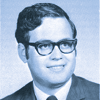Jerome Schnitt – 50th Reunion Essay
Jerome Schnitt
We all start in the same place, believing we are the center, and spend our lives realizing we are not. After college most of us focus on educational or professional successes/failures. Later, family and personal struggles/growth help define us.
One thing learned from 40 years as a psychiatrist is that we all struggle; no one escapes life’s trials. My life was such: medical school, psychiatric residency (very little of which remain relevant), hired by Yale to develop addiction services at the West Haven VA (they had none by 1975). Eleven years there, then Hospital of St. Raphael, Yale Psychiatric Institute (later Yale Psychiatric Hospital). After building a successful group practice and garnering major competitive managed care insurance contracts, I realized insurance companies were only about profit; quality was irrelevant. My private practice, like all such, was catastrophically impacted by managed care in the early ’90s, despite my having ridden the waves of the developing subspecialties of addiction, PTSD, performance arts medicine (where I played a significant part), and as president of the Connecticut Psychiatric Society. Thirty years in, I retired from active Yale clinical faculty, signed on as medical director of Stonington Institute (one of Connecticut’s major addiction/psychiatric facilities), helping guide it to a larger detox, new inpatient unit, and a dual diagnosis program for active duty military combat servicemen of Iraq and Afghanistan.
All that was ended by metastatic renal cell carcinoma, hemodialysis, and doctor visits—now as patient, not “award-winning doctor.”’ (I’d been chosen as one of America’s Best Doctors and CT Top Docs for the 20 years those awards existed. A happy capstone: Yale Psychiatry presented me their Outstanding Clinical Faculty Member Award in my retirement year.)
My wife Diana, also suffering metastatic disease, has carried me through the vagaries of living with cancer, knowing ours aren’t curable. She began work in architectural design, shifted to modern dance, became chair of the Connecticut College Dance Department, headed graduate students at the American Dance Festival at Duke, and retired to raise children (see Objective Data). I was retired from 30 years of sailing by metastatic disease.
The most relevant successes in my life are my kids and my impact on three decades of Yale trainees who learned critical thinking; avoiding premature conclusions; recognizing that when strong affect rules, logic is out; and most importantly, treating patients with respect and dignity and hearing them out helps most people to a less distressing life.
My learning curve was steep; raised to be an obsessional intellectual, I became a medical scientist/sociologist, then system builder, later adding business skills. Fortunately, I still hold my family close. Raised with Eastern European suspicion, an outsider in my home community, I lived on boundaries, never central. So I found it difficult in college to develop many long-term relationships of value. The pseudo-intimacy of therapeutic relationships was easier. Now, as health limits energy, focus, and memory, the challenges before me exceed those I’ve mastered, and I must accept the joys I can achieve.
Having been at Yale in one capacity or another for almost 40 years, I live in Sachem’s Head, a spit of land on Long Island Sound in Guilford, Connecticut. My wife, Diana, with an MFA in dance, chaired the Department at Connecticut College. We’ve been married over 45 years. Our daughter, Rebecca (Becs), 34, having graduated Phi Beta Kappa in molecular biology and neuroscience at Kenyon, and dental school at the University of California, San Francisco, is an Orthodontist in the Bay Area, which she loves. She’s one of a minority of orthodontists to also have a master’s in her field. She lives with her boyfriend of eight years. Our son, Mike, 30, a Wharton graduate, is a vice president of one of Manhattan’s largest real estate investment trusts, and rising fleet captain of the Sachem’s Head Yacht Club, plus a member of the New York Yacht Club. His girlfriend of one and a half years is getting a master’s in museum management, while working in that position as her museum develops.
If the above is blank, no 50th reunion essay was submitted.

 College:
College: